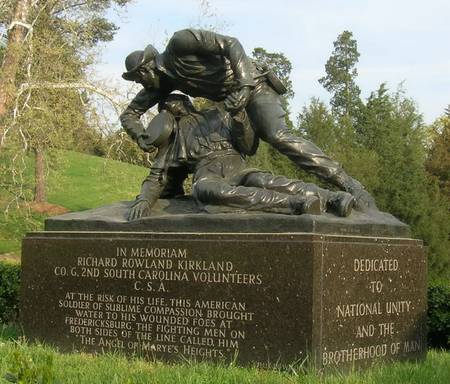
This 19-year-old risked his life on Marye’s Heights to give aid to the wounded on the other side while the battle was still going on. The federals when they realized what he was doing stopped shooting and sent thunderous cheers. The boy was killed the following September, a month after his 20th birthday–but his generous act had assured that his name would live.
Overcoming the real enemy
Last Friday and Saturday, my friend Jim and I visited the sites of two Civil War battlefields: Fredericksburg and The Wilderness. In 2006, similarly, we had gone together to visit the battlefield at Gettysburg,
Those who have been following this “Chasing Smallwood” thread know that I am in contact with a Union veteran named Joseph Smallwood. Jim is similarly connected to a Confederate veteran named Hank who, like Joseph, survived the war. But Hank, unlike Joseph, has continued to be bitter about the war, having lost his home and his previous way of living to what he considered to be an unjustified invasion of his homeland.
When Jim had suggested that we visit the site of Fredericksburg I instantly agreed–but I also felt butterflies in my stomach. I wasn’t sure that Joseph was looking forward to revisiting that particular ghastly experience. Yet I knew it was important.
Continue reading The real enemy
